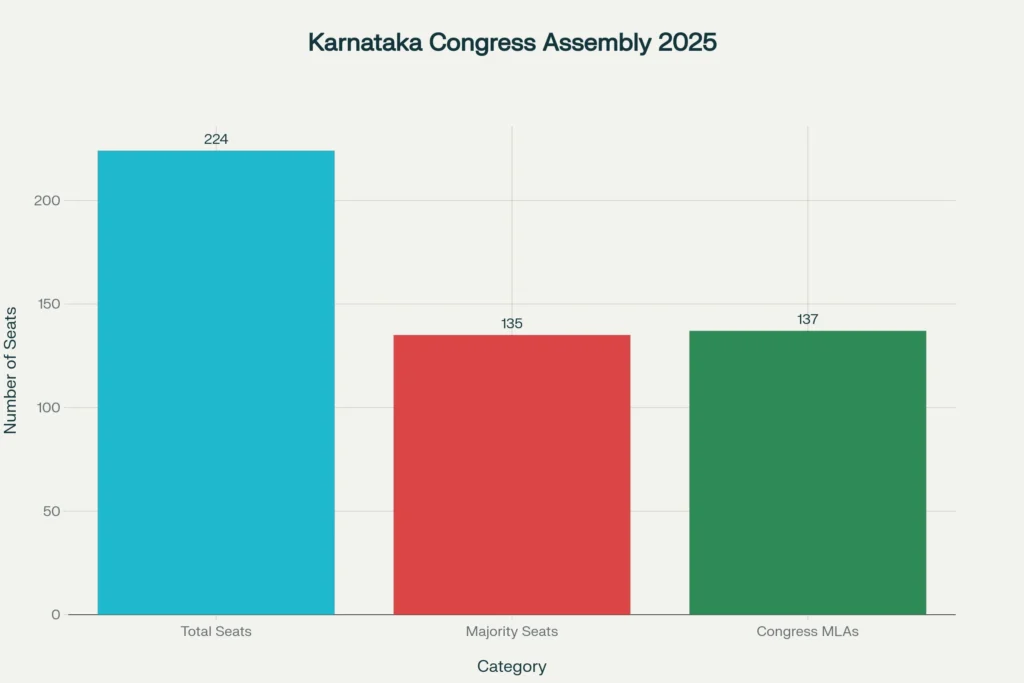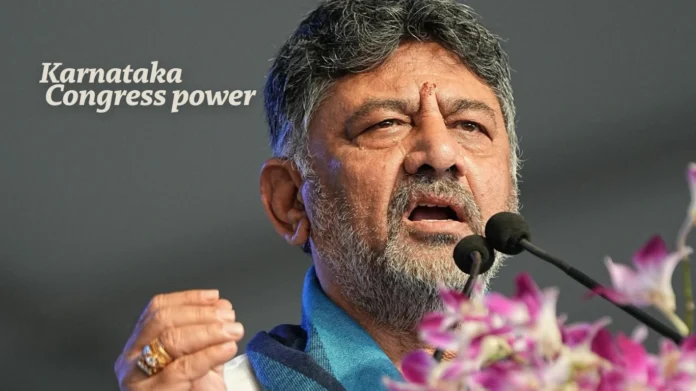Key Highlights
Karnataka Congress leadership the Siddaramaiah has completed 2.5 years as Karnataka Chief Minister amid escalating demands from Deputy Chief Minister DK Shivakumar’s supporters for a leadership switch. A group of Congress MLAs loyal to Shivakumar recently met party president Mallikarjun Kharge in Delhi to push for implementing a midterm power-sharing agreement. The Congress high command has not officially confirmed any leadership change, and Siddaramaiah insists he intends to serve the full five-year term.
Opening Overview
The Karnataka Congress leadership standoff as Siddaramaiah marks two and a half years in office. This milestone, linked to a reported rotational chief ministership pact made post-2023 assembly polls, has prompted a faction backing Shivakumar to press the central Congress leadership for action. These MLAs went to Delhi seeking to enforce a power-share switch, a scenario that highlights deep divides within the Karnataka Congress after its strong 2023 victory. Siddaramaiah maintains his focus on governance and finishing his term, while Shivakumar’s camp pushes for honoring commitments and party unity. The situation has reached a critical stage and could escalate without decisive intervention from Karnataka Congress leadership
Power Sharing Agreement and Karnataka Congress leadership Dynamics
After the 2023 Karnataka election, a reported informal power-sharing deal saw Siddaramaiah become Chief Minister, with Shivakumar serving as Deputy CM and KPCC president. Karnataka Congress leadership agreement was understood to allow Siddaramaiah the first half of the five-year term, followed by Shivakumar. As the halfway mark passed, Shivakumar’s supporters have grown vocal about enforcing the deal, seeking mediation from Congress central leadership.
Both leaders have loyal factions grounded in Karnataka’s caste and regional dynamics, and the contest reflects the challenges Congress faces managing competing power centers within its ranks. Siddaramaiah continues to assert his right to serve the entire term, while Shivakumar consolidates legislative backing. Ultimately, the Congress national president Mallikarjun Kharge and the central high command remain decisive in arbitrating this dispute.
Some conversations are effortless & yet the most impactful.
— DK Shivakumar (@DKShivakumar) May 7, 2023
Amidst the intense #KarnatakaAssemblyElection2023 campaigns, Shri Siddaramaiah and me sat for a heart to heart.
Here's what we talked about and I am sure you'll soon be asking for Part-2 of this! 😊 pic.twitter.com/G07lminx9I
Role of Mallikarjun Kharge and Karnataka Congress leadership
Mallikarjun Kharge, as Congress national president, plays a key role in managing the situation. Several Shivakumar-loyal MLAs have made their case in Delhi, underscoring the pressure on the high command to address the Karnataka Congress leadership arrangement. Kharge has promoted internal dialogue and has yet to comment publicly on the issue, aiming to contain discord within the party. Reports indicate Rahul Gandhi is also engaged in discussions, revealing the high stakes for Congress in maintaining unity. While no leadership change has been announced, the central leadership urges restraint, warning lawmakers against actions that could damage the party’s image.

Political Implications on Karnataka Governance
Karnataka Congress leadership tussle threatens to destabilize Congress’s governance in Karnataka at a midterm checkpoint. Karnataka’s caste-driven politics and regional loyalties are at the core of Congress’s internal dynamics. A forced leadership change risks MLA defections and alienating key electoral blocs, potentially benefitting opposition parties. Each leader commands significant regional support, and disruptive change could impact legislative and administrative stability. The sharp divisions highlight the broader challenge facing Congress in balancing strong regional leaders and ensuring party cohesion.
Congress Strategy and Future Outlook
Congress is working to resolve the crisis through internal negotiation and clear direction from central leadership. Senior party figures have warned against public speculation and labeled leadership change rumors as attempts to destabilize the government. Siddaramaiah asserts his intention to present future budgets and complete his term, while Shivakumar’s camp remains persistent in lobbying for power-sharing fulfilment. Resolving these demands is essential to party unity and future electoral prospects. How Congress manages this scenario will serve as an important indicator of its institutional capacity to handle internal disputes without jeopardizing public trust or governance.
Final Perspective
The Karnataka Congress leadership saga underscores the complexities inherent in managing powerful regional leaders within a national party. What began as a stabilizing power-sharing agreement has become a test of Congress’s ability to maintain internal coherence and deliver on governance. The role of Kharge and Gandhi as mediators remains critical, as how the party handles this dispute will shape both state-level governance and Congress’s broader organizational stability. The situation remains fluid and warrants close observation for its wider political repercussions.


